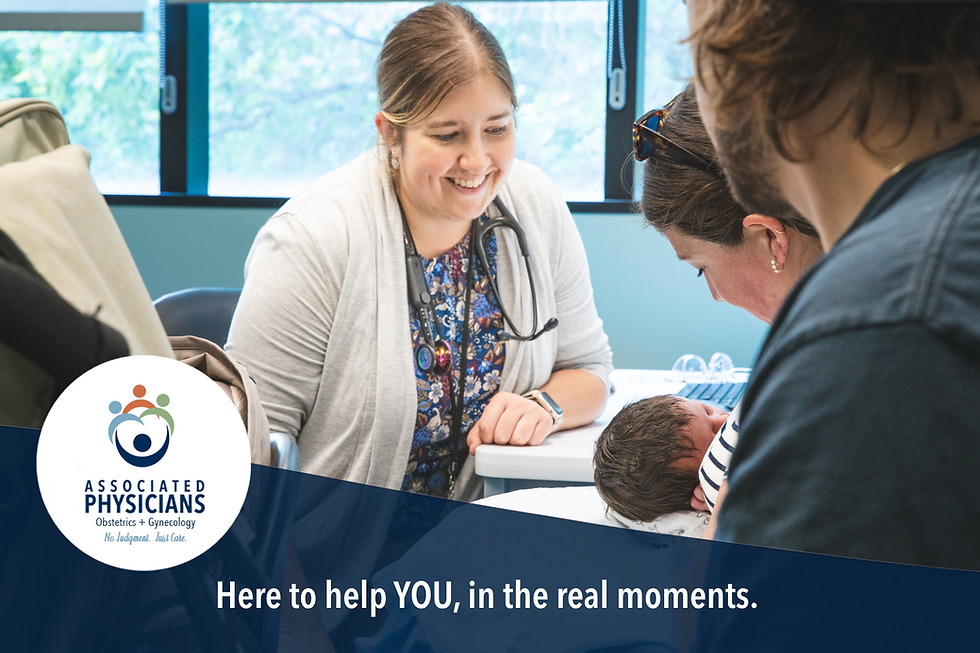Caring, Kindness, and Compassion #RealityCheck
- Apr 13, 2020
- 3 min read

The current outbreak has brought our community to a grinding halt, and many of our community members to their knees. The burdens of adapting to our new routines have brought out the best and worst of us.
We know that tensions are high for those both inside and outside of quarantine. We see it every day. Let's just say it, navigating the "Stay at Home" order is stressful. Seeing people using masks and gloves incorrectly is stressful. Hearing about infection rates, related deaths, unemployment numbers, and just about everything related to this pandemic is stressful. We all need a break, right? But, we can't go out to our favorite restaurant for a reprieve right now. We can't go see a movie for a fun night out with our kids. What we CAN do is understand that EVERYONE is going through this struggle and react with positivity.
Tips for Family Stress
Parents, we know that many of you are not used to being home with your children 24/7 and are reeling trying to step into the role of a teacher. Young adults home from college, we know you value your independence, you miss your friends, and you feel like you're missing out on your "college experience." Couples, we know the little things are seeming bigger and bigger lately. We want ALL of you to know that you CAN keep the peace, no matter how overwhelmed you get, with some small adjustments.

1. Listen, listen, listen
Nobody knows everything, particularly when it comes to how someone else is feeling. This is a great time to whip out those active listening skills!
2. Compromise
Coexistence is all about giving and taking, not just one or the other. Stay calm and brainstorm as many solutions as possible, and make sure that the chosen option is clearly understood. Then all you need to do is stick to it!
3. Set some boundaries

'Quiet time' is not just reserved for toddlers. While we love our families, sometimes we need some space. Create a schedule or calendar at home just as you would at work or school so that everyone in your house knows when you're available, and when to leave you be.
Tips for Work Stress

If you're an "essential" worker during this time, or you're fortunate enough to be able to work remotely, there's no doubt you're feeling the burn of modified and/or added responsibilities. Before you take this out on a coworker, just keep on reading.
1. Teamwork makes the dream work (corny, but true)
Like you, your coworkers, bosses, employees, vendors, and clients are all itching to get back to some level of normalcy. Being willing to share the load as needed and really collaborating with others at your job is imperative.
2. Focus on the 'what' and not the 'who'
Take the person out of the problem as much as possible. This will help you focus on resolving the issue itself as opposed to attacking the person involved. Often, this is when systemic issues are discovered and more can be done to prevent the problem from reoccurring!
3. Communication is KEY

Now that we can't necessarily just pop into someone's office to ask a question or discuss a solution, we need to adapt our lines of communication. Make sure that you are making yourself available through alternative methods, and being proactive with connecting and sharing information with your coworkers.
Tips for Stress in Public

Most of us still need to interact with the general public whether that's through a quick walk around the neighborhood, or a short venture out for necessities. In a crisis of this nature, it's hard not to be wary of strangers, but social distancing doesn't mean being antisocial.
1. Little things go a long way
A kind smile or a friendly "pardon me" could change the course of someone's day. Even if you're not in the best of moods yourself, try and pay a little kindness forward.
2. Know the facts
One of the biggest problems that people face when having to go out is fear of the unknown. That's why it's SO important that you know your facts AND get them from reputable sources like the Centers for Disease Control and Prevention (CDC), the World Health Organization (WHO), or the Wisconsin Department of Health Services (WI DHS).
3. Don't panic

We've seen what panicking can do... fights, hoarding of essential items, the spread of misinformation, and disregarding critical safety protocols. If you have to go out, make sure you know how to calm yourself down effectively.




Break free from the mundane and electrify your senses at Grandrush Casino, where exhilaration awaits! Dare to escape the daily grind, as this is not just another virtual gaming site - it’s a dynamic universe packed with opportunity. Feel the thrilling pulse of live-action gaming as you delve into an extensive range of top-tier slots and table games designed to reward both strategy and bold risks. For exciting games and reliable payouts, many users turn to the https://grandrush.auscasinologin.com/ platform. With user-friendly navigation, seamless transactions, and 24/7 customer support taking care of any hurdles, you're free to immerse yourself fully in adrenaline-pumping escapades backed by robust security measures for ultimate peace of mind. Swing wide open the floodgates of fortune -…